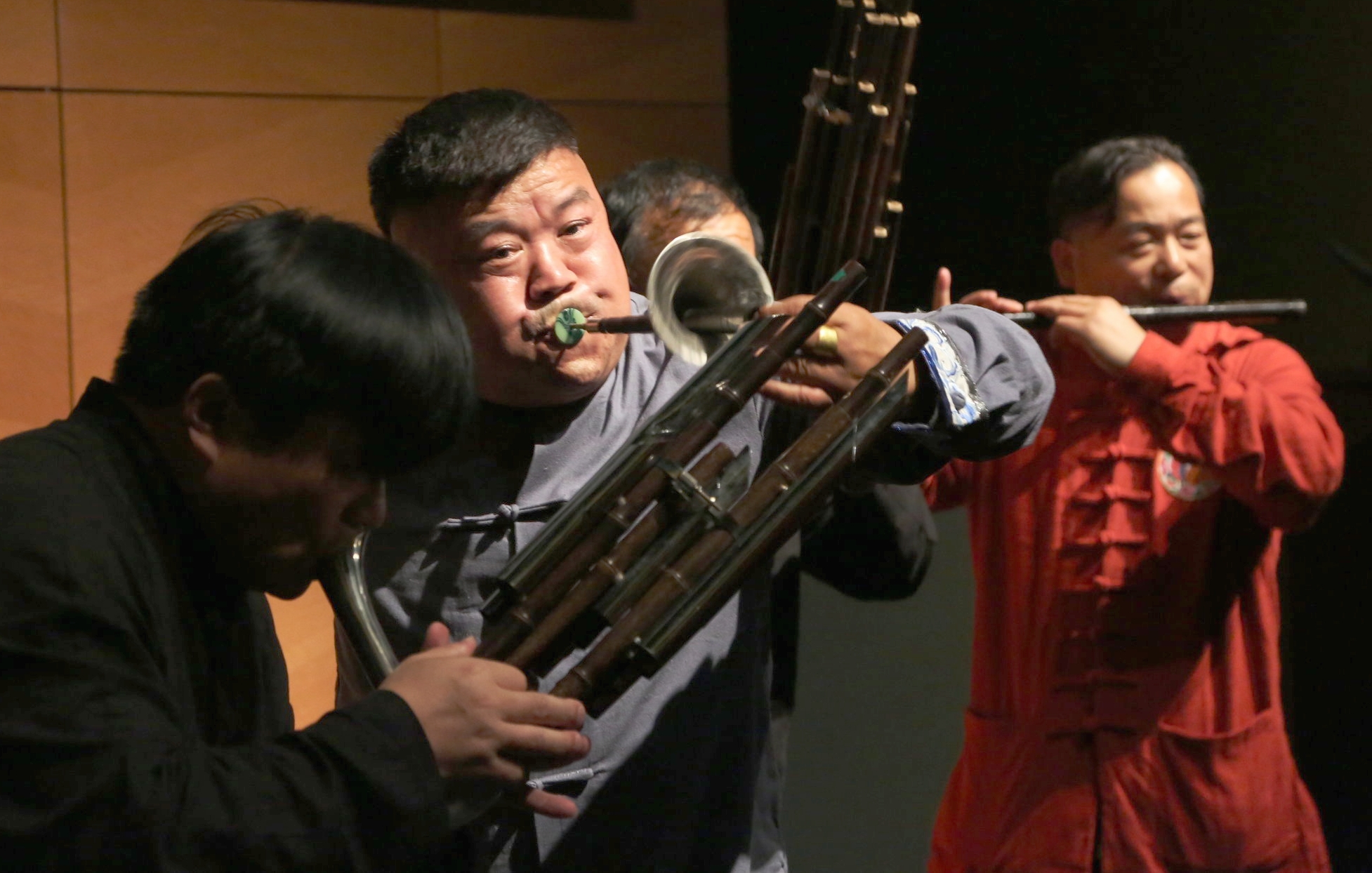traditional wind and percussion music from central-eastern China
Anhui Province, China
The Zhou Family Band plays traditional music that joyfully upends Western expectations of Chinese music—and Chinese musicians. As the band has begun to tour internationally, they invariably surprise and impress; they were universally acclaimed as a highlight of 2017’s WOMAD festival, where one delighted reviewer declared them “musically impressive and ridiculously slapstick in nature, often simultaneously.”
The Zhou Family Band hails from Lingbi in the Anhui Province of central-eastern China. Together with the adjacent provinces of Henan and Jiangsu, the region is known as Huangfanqu, and revered as the cradle of Chinese civilization; however, it is also historically prone to flooding and subsequent loss of life. Thus, as Mu Qian, an ethnomusicologist and the band’s de facto manager, says, “There is a feel of ephemerality in the local culture, making people try to enjoy life as one is alive.” For at least 600 years, a central artistic expression of this sentiment has been the musical tradition of chuida. Known in Huangfanqu as bolin laba, the tradition has been declared a national intangible cultural heritage of China by the Chinese government. Chuida and bolin laba literally mean “breathing-striking,” aptly describing the genre’s combination of percussion with wind instruments. The Zhou Family Band has carried on this tradition for at least seven generations, playing at life-cycle events and community festivities of all kinds. The form is meant to be entertaining, even at funerals, which in the village context are also forms of celebration. The band’s raucous, highly physical performances convey deep truths about the human condition in a visual language that is accessible to audience members of all ages and walks of life. “The system of rites and music is the core of the Chinese nation. And no rite is bigger than life and death. We play on weddings which will bring new life, and funerals which see off and show respect to the departed. The two ceremonies deliver a supreme power,” bandleader Zhou Benming explains.
The documented founder of the band was Zhou Jingzhi, a musician in the royal court of the Qing Dynasty in the late 19th century—although the family believes their tradition of playing at local ceremonies may have begun much earlier. Led by fifth-generation musician Zhou Benming, the band encompasses many smaller ensembles including over 100 musicians, all family members or other musicians trained through traditional master-apprentice relationships with the Zhous. The band is so popular that the waiting list to book them can exceed two years, and they have over 1,000 students striving to learn the tradition. The eight musicians performing at the Richmond Folk Festival are all bandleaders in their own right, each heading an active Zhou Family ensemble in China under Zhou Benming’s leadership; the Richmond shows include two of his brothers, Zhou Benxiang and Zhou Benling.
One of the band’s signature songs is “Wild Geese Landing on the Shore,” a structured improvisation in which a migrating flock takes off from shore, returning twice to gather other geese until all are accounted for. Mu Qian describes this song as depicting “the community spirit of traditional Chinese society,” exemplified by the work of the Zhou Family Band—a tradition in which no member of the community is left behind.


